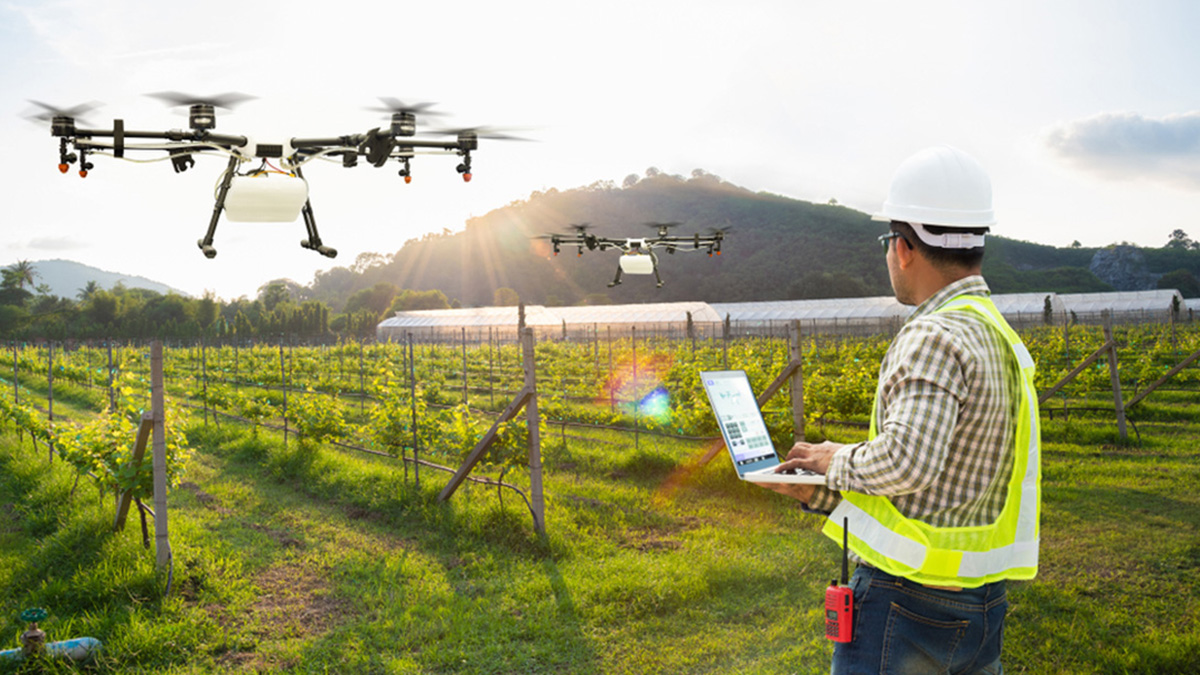Science, technology and innovation solutions hope to boost food security in developing countries as they seek ways to bounce back from COVID-19.
CropWatch is a system that uses satellite data to monitor crop conditions.
Food security is at a critical juncture. The COVID-19 pandemic has disrupted food production, trade, logistics and value chains.
Pandemic-induced lockdowns, travel bans and physical distancing measures have worsened the risk of food insecurity globally.
These restrictions are being felt particularly strongly by low-income households and those working in the informal economy in developing countries, partly due to their loss of livelihoods and inability to access markets.
While COVID-19 has reduced incomes and disrupted supply chains, chronic and acute hunger was on the rise even prior to the pandemic due to factors such as conflict, poor socio-economic condition-s, natural hazards, climate change and pests.
Amid these pre-existing and new conditions, 14 developing countries are benefitting from a partnership forged in 2020 to harness satellite technology in tackling food insecurity.
On 22 March, 25 participants from Afghanistan, Algeria, Kenya, Lao PDR, Lebanon, Malawi, Mauritius, Myanmar, Nigeria, South Africa, Syria, Thailand, Turkey and Zambia kick-started the initiative with a virtual meeting.
They learned more about the initiative ahead of a two-month online course on how to harness the potential of satellite technology, which runs until the end of May.
A partnership for the future
The new initiative is part of an ongoing partnership launched in July 2020, in line with a memorandum of understanding signed under the auspices of the United Nations Commission on Science and Technology for Development (UNCSTD), for which UNCTAD serves as the secretariat.
“The partnership is expected to lead to meaningful transfer of technology to the participating countries,” said Shamika N. Sirimanne, UNCTAD’s director of technology and logistics.
“We know that science, technology and innovation play a central role in the achievement of the SDGs and this programme will contribute directly to achieving SDG (sustainable development goal) 2 on ending hunger and achieving food security, using satellite technologies,” she added.
“Our expectation is that this project will enable participating countries to build their know-how and technical capabilities in crop monitoring, which can increase their resilience to future shocks in food production systems,” Ms. Sirimanne said.
The CropWatch Innovation Cooperation Programme aims to enhance capacities for food security early warning using the Earth observation satellite system for crop monitoring, CropWatch.
Cropwatch uses satellite data to monitor crop conditions, integrating it with other climate-related data on drought, pests and diseases for better farm management.
The programme’s partners include UNCTAD-UNCSTD, the Alliance of International Science Organizations (ANSO) and the Aerospace Information Research Institute (AIR) of the Chinese Academy of Sciences (CAS).
“We believe that earth observation system has an important role to play in solving food security issues and achieving sustainable development goals,” said Ms. Jie Liu, Director of International Cooperation Division at AIR/CAS.
“This training will provide useful insights to the system and strengthen the agricultural capacity of participating countries,” she added.
Resilience hopes hinged to technology
Participating countries also welcomed the expected benefits of the project at the kick-off meeting.
“What we are expecting from this programme is to learn about the ways to increase food production for farmers through crop monitoring and drought assessments,” said the Nosiseko Nombedesho Mashiyi, South African National Space Agency remote sensing scientist.
"We are looking forward to learning how remote sensing can assist in achieving this objective," she added.
Another participant also highlighted the role of the project in helping countries to be more climate resilient. “By participating in this programme, we expect to become more climate-resilient through better preparedness by adopting innovative technologies and being more equipped to achieve our ultimate aim of food security, in line with SDG 2,” said Arty Gungoosingh Bunwaree, a senior research scientist at the Food and Agricultural Research and Extension Institute in Mauritius.
Real-time monitoring
The programme enables participating countries to independently monitor their crops in real and near real-time and provide an infrastructure platform to synthesize data to promote national food security.
The system can also be customized to meet countries’ and regions’ specific needs and foster the implementation of the SDGs.

